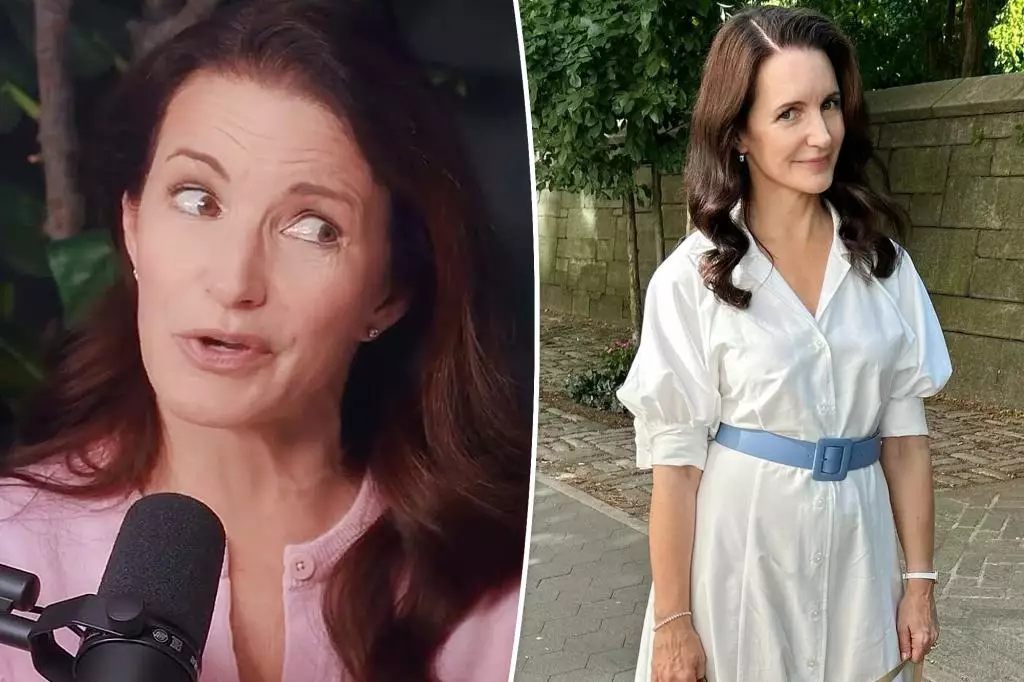In a startling revelation on her podcast “Are You a Charlotte?”, actress Kristin Davis shared a personal story that underscores the often complex dynamics of relationships, especially when financial support is involved. Davis recounted an experience with an unnamed actor who, despite being talented and later achieving success, famously ghosted her after she lent him $5,000 during a difficult period in his life. The incident reflects not only the unpredictable nature of human interactions but also raises questions about boundaries and expectations in friendships and romantic relationships.
Davis reminisced about their relationship, which preceded her rise to fame in “Sex and the City.” At the time, she encountered an actor struggling to find his footing in Hollywood, facing mounting bills and seemingly deterred by personal setbacks. After learning that he had wrecked his motorcycle, which hindered his ability to attend auditions, she felt compelled to step in and assist him financially. While her intentions were rooted in compassion, the aftermath revealed a harsh truth: sometimes, lending money can irrevocably alter the dynamics of a relationship.
This situation is not unique to Davis; many individuals have found themselves in similar dilemmas where a gesture meant to be helpful ended in disappointment or regret. The emotional toll of such experiences can lead individuals to re-evaluate their approach to generosity.
Post-lending, Davis experienced a distinct change in their relationship. She noted, “It changed the dynamic in a horrible way.” When the actor ceased communication after her kind gesture, Davis felt compelled to confront the situation in an increasingly desperate manner, even resorting to knocking on his door to seek acknowledgment. This moment of vulnerability illustrates a common need for recognition in human connections, particularly when one party feels their goodwill has gone unappreciated.
The interaction culminated in a phone call where the actor asked her if she had indeed been knocking on his door. Davis’ admission of embarrassment highlighted the often unspoken social contract surrounding such interactions—where kindness should ideally be met with respect and accountability. The fact that she felt the need for acknowledgment serves as a reminder of the emotional weight we place on relationships and the expectations we hold.
Kristin Davis’ experience serves as an insightful case study into the complexities of interpersonal relationships and the consequences of financially helping someone. It stresses the necessity of understanding boundaries in both romantic and platonic settings. While offering assistance is commendable, this incident suggests that clear communication about expectations and potential repercussions is equally essential.
Moreover, Davis’ reflections invite a broader dialogue about the societal pressures surrounding financial support among friends and partners. It encourages individuals to assess the motivations behind their generosity and to consider their own emotional needs in such scenarios. In the end, kindness should not come at the cost of one’s self-respect or dignity.
Ultimately, this story is a poignant reminder of the intricacies within human relationships, illustrating that even small acts of kindness can lead to unexpected challenges. It emphasizes the importance of navigating these situations with care and awareness, ensuring that goodwill doesn’t inadvertently lead to disillusionment.


Leave a Reply